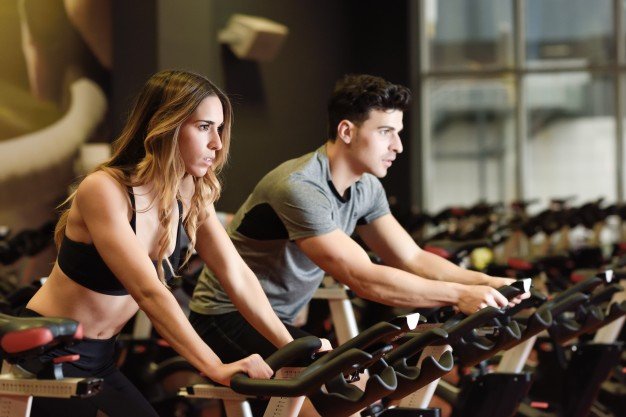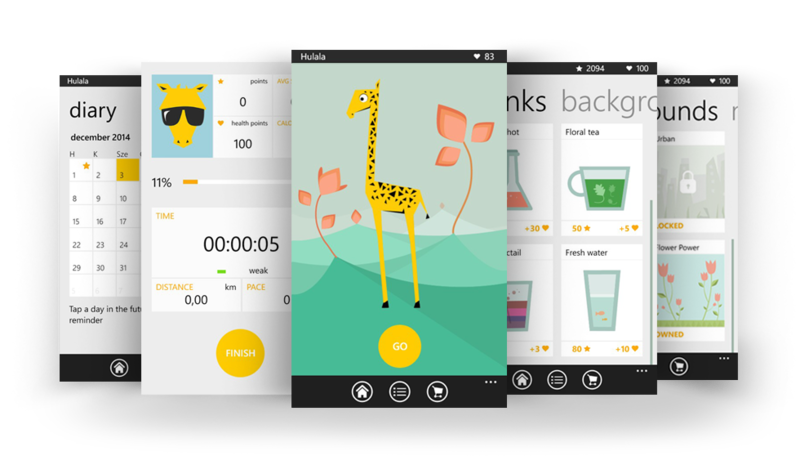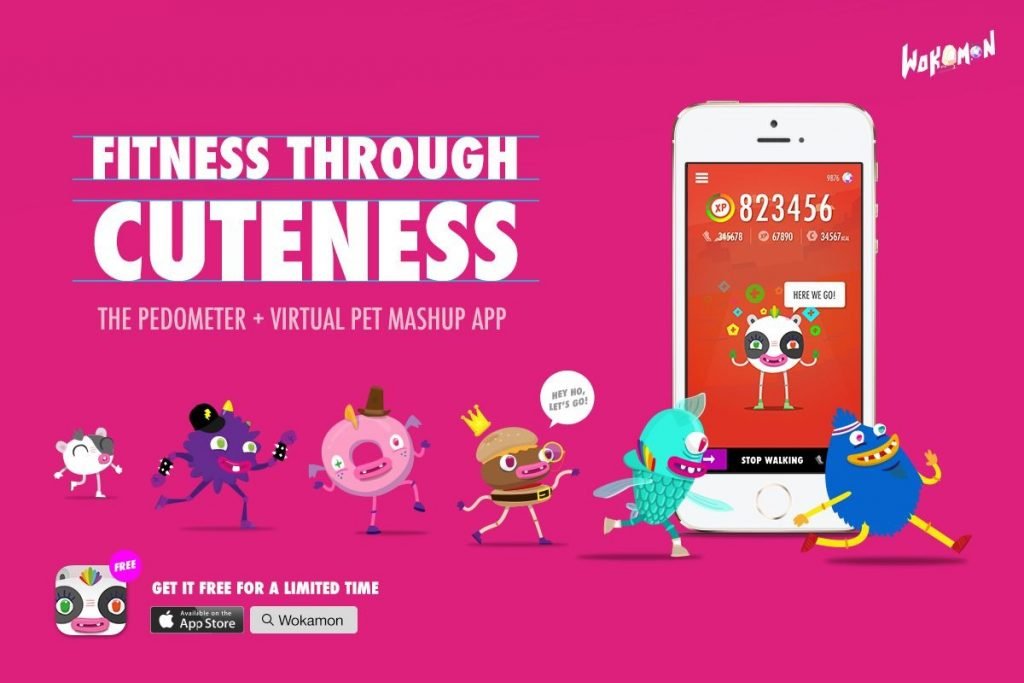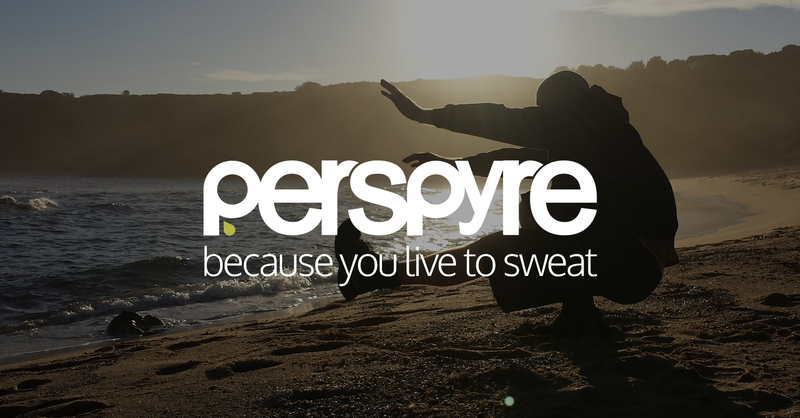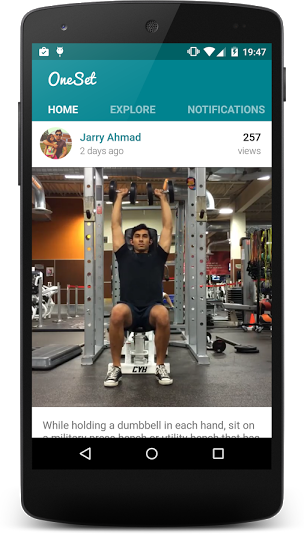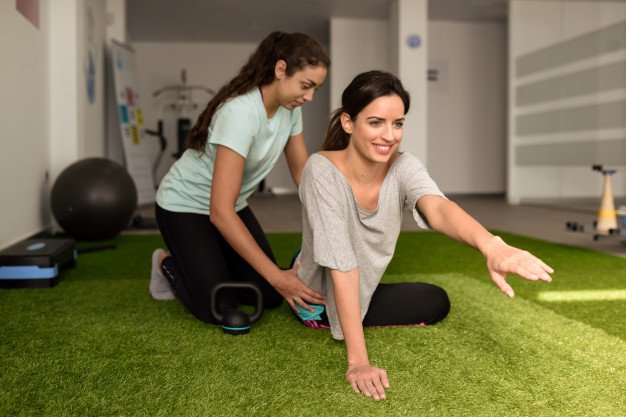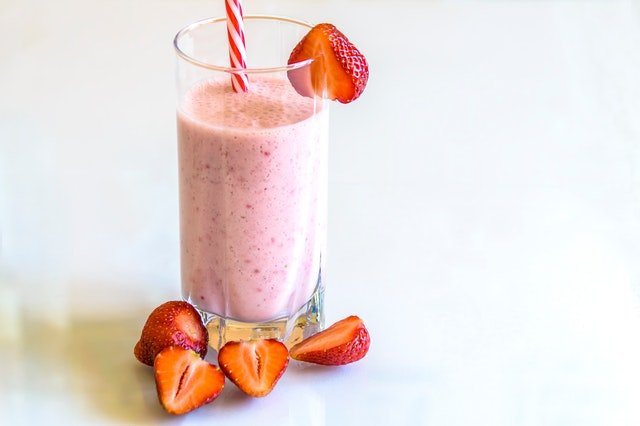The holiday season is officially over, which means it’s time to start working off some of the extra pounds you picked up at mom’s house. While people generally love the idea of looking like the dudes who do commercials for home-exercise equipment, most of us still hate working out and dieting. If you are one of them, don’t worry. There are a ton of startups offering the kind of motivation you need in the form of mobile apps. Such apps use activity tracking as well as fitness and health risk assessment apps.
Today we’ll be exercising our startup muscles by taking a look at some of these young companies and what makes them tick.
8 Motivations to Start Up Health & Fitness:
Fitness gamification is huge right now, which makes sense given that it adds a much-needed dimension of play to the arduous task of getting fit. A great example of fitness gamification is Tep, which is basically a cross between a fitness tracker and a Tamagotchi; though, in the case of Tep, the star is a niftily-designed giraffe rather than a globular cluster of black pixels.
The more a user exercises, the better the giraffe does (users can buy their long-necked pets treats with rewards points they earn from walking, running and cycling). If users slack off, though, it’s curtains for the poor creature.
According to the app’s creators, a group of five super-talented self-starters from Szeged, Hungary, «Tep’s competitive edge relies on emotional connection and the mental „threat“ that the beloved pet might suffer from the lack of proper physical activity and thus offers a solution for curve fatigue effect.»
Does that sound a little dark? Sure. But it’s for a good cause. The founding team’s goal is to help users lose eight million pounds of fat in the next three years; there’s also talk of buying a giraffe.
The founding team built Tep on their own time and dime, but are currently funded by Traction Tribe and prizes from Microsoft’s Imagine Cup.
Tep is available in beta for Android and Windows phones, with an iOS version coming soon.
Wokamon
If you like the idea of a digital workout buddy helping you toe the line, but giraffes aren’t really your thing, then you might dig Wokamon, which comes to us from Mars Zhu and Hazim Abdul Hamid of Noodum.
Wokamon features dozens of animated monsters that get bigger and stronger as you do. Since it comes with a pedometer and syncs with wearables like Jawbone, Fitbit, and Up, you can be sure that every calorie burned gets counted and fed to your growing army of critters.
Connecting with friends on social media through Wokamon earns you reward points, which you can burn on unlocking new creatures.
Noodum and Wokamon are currently being funded by an $18,000 seed investment from Manchester Metropolitan University’s Innospace Incubator.
Gamified fitness apps like Wokamon and Tep have a lot of options when it comes to future monetization. They can either take the Zombies, Run! The approach of charging for downloads (which works if you’re as niche and well-made as that app) or offer in-app purchases for things like new backgrounds, characters, or crystals and boosters for your pet monsters.
For now, though, we can take advantage of both Tep and Wokamon for free.
Teamster
Teamster is an iOS app that, contrary to its name, has absolutely nothing to do with trucking. What teamster does do, though, is help you connect with other people in your area who are interested in the same sorts of athletic activities as you.
Conveniently, users are able to identify which sports they like and their level of skill in each on a scale of 1 to 5, which means you won’t be totally outmatched when you meet up for a game with other users.
When you find another user who shares your interests and skill set, swipe right in the app to add them to your team. Sounds like Tinder is ubiquitous, doesn’t it? Users can then create activities for other users or teams to join.
Teamster comes to us from the Melbourne based duo of Henry Chan and 22-year old Sam McCallum, who has a background in competitive running, cycling, and skiing.
Actually, 2015 is shaping up to be an awesome year for apps that bring social networking logic to the gym. Take Boston-based Perspyre, for example, which is coming out soon with a beta version for Android and iOS.
The whole point of Perspyre is connecting people who love to sweat and giving them access to workouts, advice, and motivation. Users can log into the app via Facebook and take post-workout selfies, record workouts, and brag about new personal records.
Though it’s admittedly a little intense for beginners, Persypre is perfect for those who are already «motivated and dedicated» enough to willingly visit Crossfit and P90x classes.
Perspyre is the brainchild of Jason Chisholm and Jeremy Mays and has received $25,000 in seed funding from John Piret of the investment firm Newbury Piret & Co.
If Perspyre sounds like it’s right up your alley, keep an eye out for the soon-to-be-launched SternFit iOS app which also gives workout buffs a great platform for sharing pics, tips, and workouts.
Rocket Journey
If your meteoric rise to peak physical perfection is still in the launch phase, you’ll find a helpful companion in RocketJourney, which bills itself as the «smartest and friendliest way to a fitness lifestyle.»
The app’s founding trio of Carlos Ayala, Pablo Artee, and Ernesto Cambuston has received funding from 500 Startups, the seed fund and startup accelerator comprised of Google and PayPal alums.
RocketJourney tracks all of your fitness activities from cycling to yoga to lifting to competitive eating — just kidding about that last one — and verifies that you’ve actually worked out through GPS and wearables integration.
The app motivates you to stick to your fitness regime by giving you points for completed workouts and taking away points for missed ones. The same logic holds true for user-created «teams» which add the pinch of peer-pressure that it just might take to keep you on track.
You can register for updates on RocketJourney’s release on the website.
OneSet
OneSet — «Vine for Fitness» — is another promising app to stay tuned for in the months to come. Users can create 15-second videos demonstrating an exercise or «stack» other users’ videos into workouts.
Since videos are organized by muscle group or goal, it’s easy to find the right moves for you.
OneSet’s founding team is based in Waterloo, Canada, and consists of brothers Amad and Shameel Abdullah, as well as full-stack developer George Xu.
GYM radio
Sometimes all it takes to reach the athlete within is finding the right music to sweat to, or the right gym to do it in.
Though GYM radio’s online music streaming service has been around since 2013, its new iOS, Android, and Windows phone releases have made it easier than ever to get amped up and pumped up at the same time.
The app features three music settings — cardio, gym, and hardcore-tailored to give your workout the right feel. Here’s the best part: GYM radio is completely ad-free, which means your runners high won’t get interrupted by voice-actors pitching toothpaste or discount car insurance.
GYM radio also offers a premium upgrade which, for a monthly or yearly subscription, will let you listen offline, skip songs, and get access to material unavailable on the standard version.
Gymhopper
Gymhopper — «Uber for gyms»- is a Swiss startup that aims to help you find the right gym by offering its users discounted individual training passes. Gyms benefit from the app by getting a little extra exposure as well as a shot at their target market, people who are actively searching for a new place to get sweaty.
Gymhopper is currently in series A fundraising but expects an iOS release later this year.
What can fitness startups learn from RunKeeper?
Figuring out how to actually make money with your app is a problem that can plague even the biggest of startup fish. Each of the aforementioned apps will have to figure out the right monetization strategy for their product and user-base. One good model employed by the leading fitness tracker RunKeeper is to partner with other businesses to provide sponsored advertising to users.
That means Teamster’s users could theoretically get discounts on Nike products for showing up at local softball games, and Perspyre users could get 25% off gym memberships for visiting p90x classes 3 times a week.
There are a lot of good ways to get back in shape, and a lot of good startups out there creating more every day.
Read Also:
- 8 Fitness Hacks That Will Make Your Life Better
- How Do I Get Back In Shape? Fitness Experts Share Their Tips!













